We Are Still Here
How 10 activists around the world are fighting for a more sustainable future
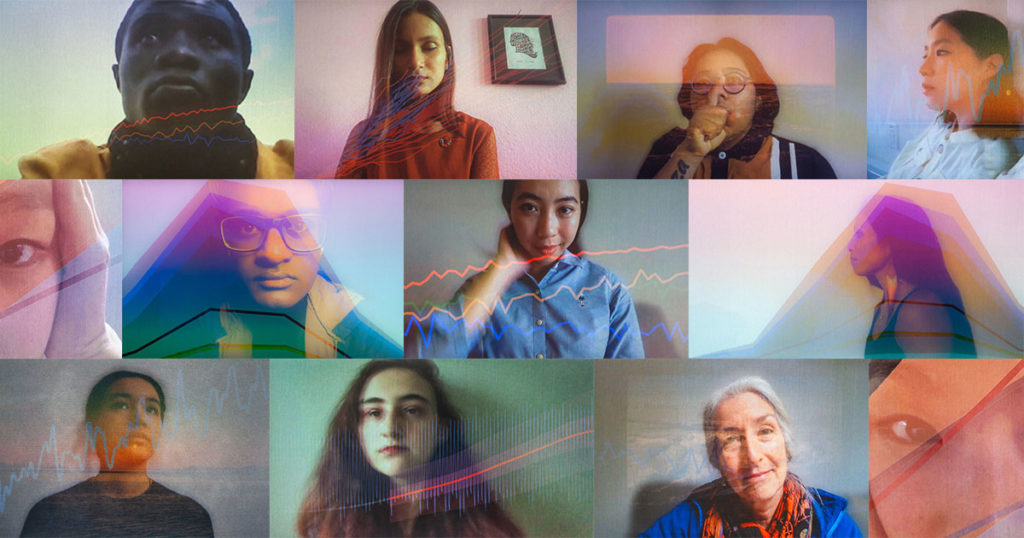
Early last year, as Covid-19 spread across the globe, flights were grounded, transportation slowed, and the economy came to a standstill. The world subsequently experienced the quickest single decline in global greenhouse gas emissions in the past 100 years. In 2020, global carbon dioxide emissions fell by 6.4 percent; in the United States, emissions dropped more than 10 percent.
This temporary respite notwithstanding, the pandemic has created numerous challenges for those addressing the climate crisis. Scientific studies dedicated to better understanding the effect of climate change in the Arctic were stalled or canceled due to international travel bans, logistical challenges, or loss of funding. Crucial international climate negotiations, such as the World Conservation Congress and the UN Ocean Conference, have been delayed. Diminished law enforcement has led to illegal logging and deforestation in the Amazon. Relief and stimulus spending are at unprecedentedly high levels, resulting in larger and deeper deficits in countries that may not be able to meet (or augment) pledges to the Paris Agreement. The United States, for example, which rejoined the Paris accords in February, will likely have to cut overall emissions by 40 to 50 percent over the next decade in order to meet its pledge.
Even in a year of isolation, lockdown, and economic shutdown—hardly a desirable state of affairs—no country in the world came close to that mark. The Earth has already warmed by one degree since pre-industrial levels, just 0.5 degrees shy of the 1.5 degrees scientists warn we must stay below to avoid the most catastrophic consequences. The UN’s Intergovernmental Panel on Climate Change says that we have 12 years to slow carbon emissions before we reach that point. Meanwhile, as sea levels rise, droughts intensify, wildfires rage in the West, flooding increases in the South, and hurricanes ravage the Gulf of Mexico, climate migrations have already begun in the United States. This has been the hottest decade ever recorded.
As a photographer with a deep concern for environmental issues, I have spent much of the past year trying to document the stories of climate change scientists, activists, artists, journalists, and others on the forefront of the climate movement—those who are trying to imagine a more just, equitable, and sustainable future for us all but who have encountered various obstacles during the pandemic. We Are Still Here is a remote portrait project that highlights dozens of these visionaries, many of whom lost their funding or their jobs, dealt with work stoppages, lost family members to the virus, and became ill themselves, all the while finding innovative ways to fight for a better world. This project, by necessity, reflected the shift that so many of these individuals have made to working online: I interviewed and created remote portraits with each person by video. By projecting their live video onto a canvas backdrop, I created a composite portrait using a second projector to overlay visual climate change data particular to each participant’s location. The following 10 individuals represent a small sampling of this project.
Jamie Margolin
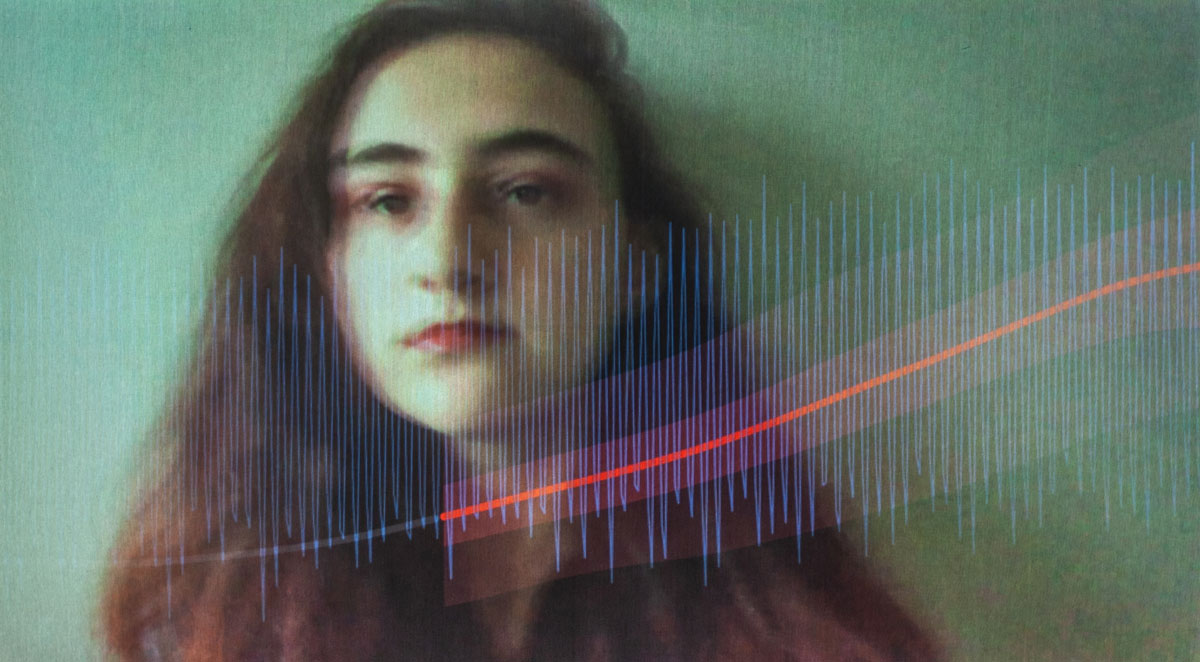
Jamie Margolin, 19, is the co-founder of Zero Hour, a youth-led climate organization. Most of her protests, organizing events, and speaking engagements have been postponed or moved online. Margolin recently published Youth to Power: Your Voice and How to Use It, a guide for youth activists and organizers in the climate movement. “We are not trying to go back,” she said of transitioning out of the pandemic. “We are trying to go forward. We are trying to imagine and build a whole new world, a just world, a sustainable world. That’s really what we are working for.”
Phoebe Barnard
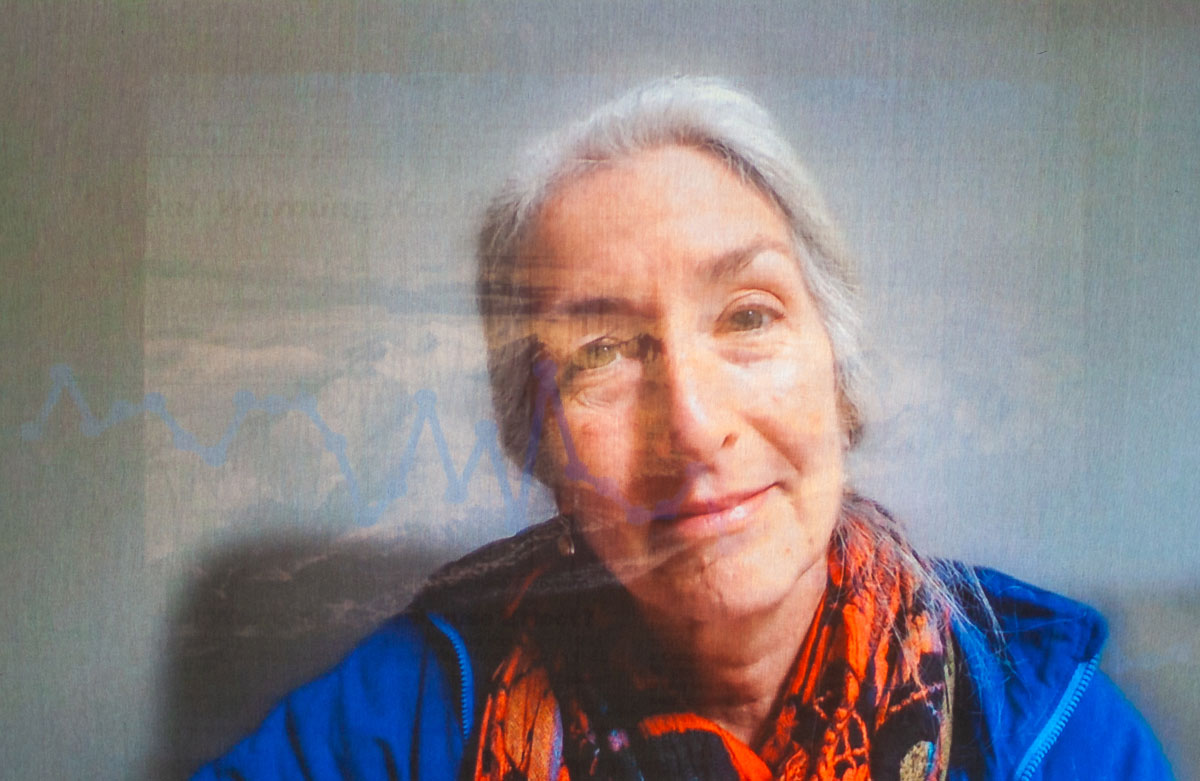
Phoebe Barnard, 59, is the chief science and policy officer for the Conservation Biology Institute, an affiliate professor at the University of Washington, and a research associate at the University of Cape Town. For 34 years, she has led climate change and biodiversity research efforts in southern Africa. Quarantining in Washington state, Barnard has had to balance her work with supporting her oldest daughter, who recovered from Covid-19. “Now is absolutely our window to make fundamental changes to our current system, which has not only depleted the natural world, but also frayed the fabric of our society,” said Barnard. “This is the most stark and vivid opportunity that we have ever had in my lifetime.”
Barry Nyuydze Berry
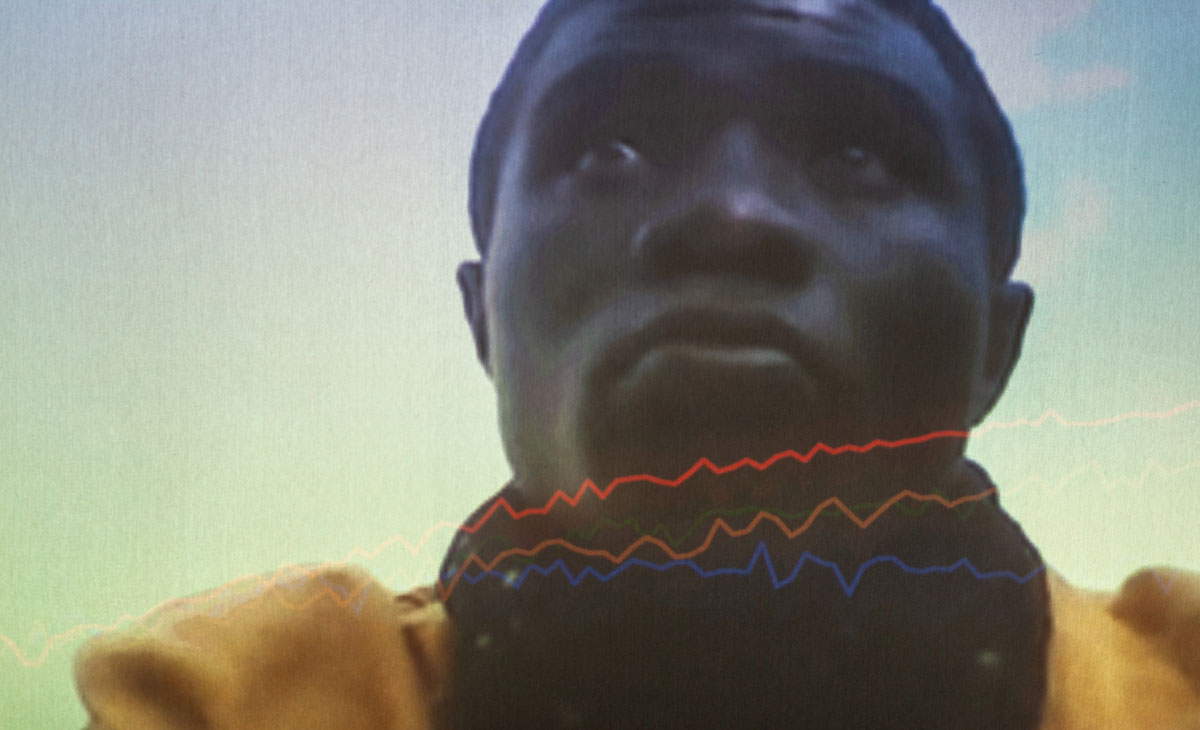
Barry Nyuydze Berry, 21, is a university student in Dschang, Cameroon. Berry—who usually works in rural regions of his country with farmers, women, and youth—is quarantining at home. He promotes sustainable agricultural and agroforestry practices, teaches environmental education classes, and collaborates with young people who are similarly fighting for a better future. Working online in rural Cameroon has presented financial and logistical challenges, but he has succeeded with many initiatives, including the founding of a new tree nursery in his community. “I am trying to pass a message to my brothers and sisters who are out there, to know what we can do—together we stand, divided we fall,” he said. “For if we don’t do something now, no one will.”
Bindu Bhandari
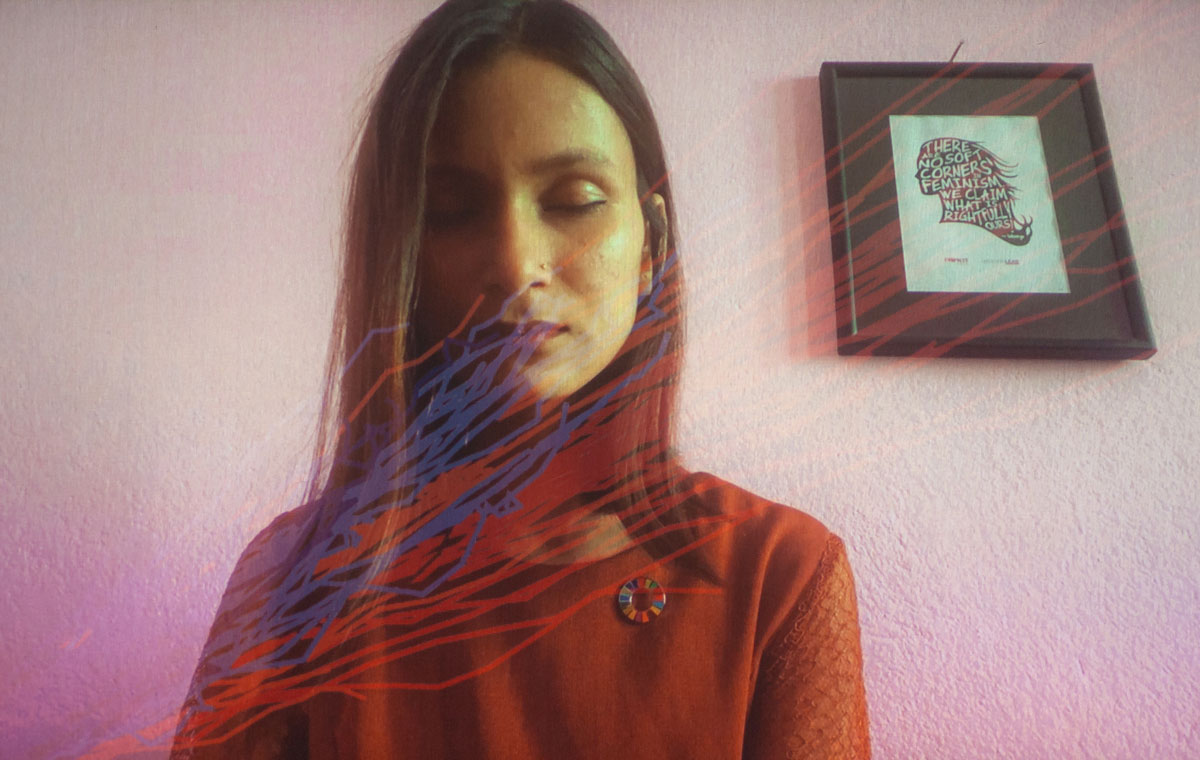
Bindu Bhandari, 28, is a program associate at the Climate Interactive, a nonprofit think tank that develops interactive tools for understanding climate change and the energy needs of communities trying to reduce their greenhouse gas emissions. Originally from Kathmandu, Nepal, Bhandari is pursuing a graduate degree in climate change science at the University of Bristol in the U.K. She has concerns for her family’s health and safety, with Covid-19 currently overwhelming Nepal’s health care system—hospitals are running out of beds, vaccines are in short supply, and infections (and deaths) continue to rise. Nevertheless, Bhandari sees this pandemic as an opportunity to reframe fundamental systems in our global society. “We can divest from fossil fuels and make renewable and clean energy more attractive,” she said. “Delivering solutions to fix climate change can also solve other issues, like equity in health.”
Lia Zakiyyah
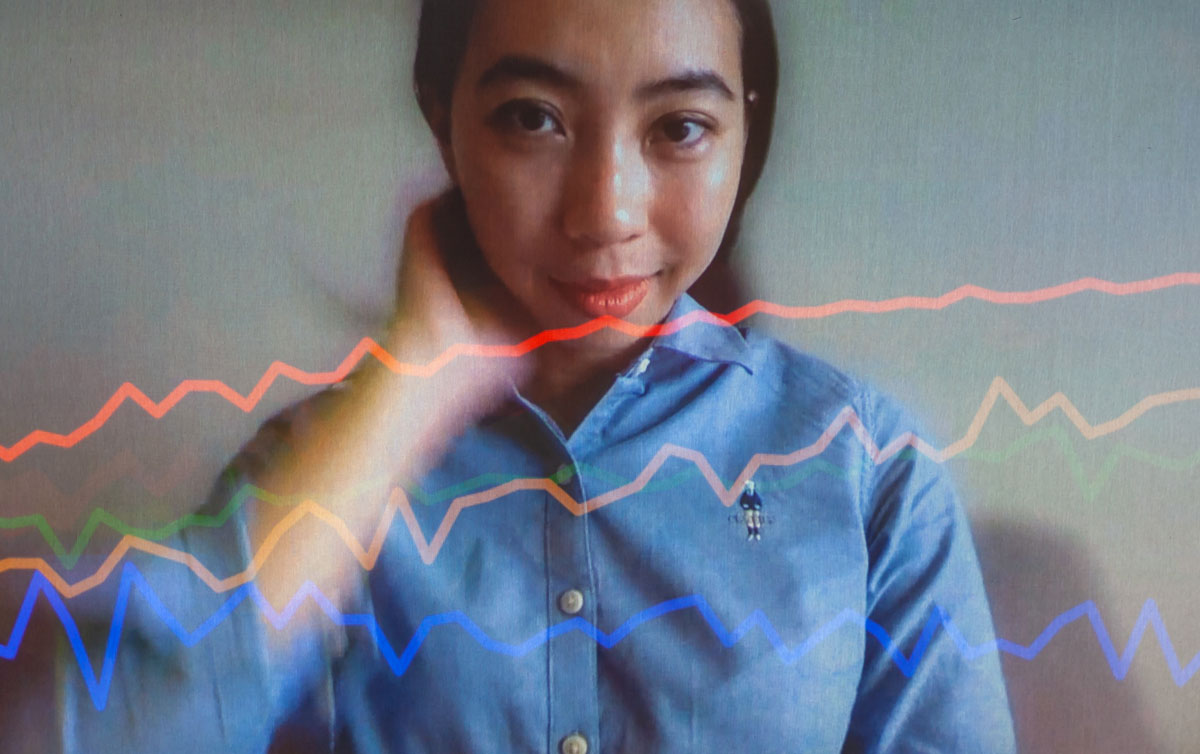
Lia Zakiyyah, 35, is the program coordinator for the Australia-Indonesia Programs on Sustainable Development & Climate Change and a research associate for the Institute of Sustainable Earth and Resources for Universitas Indonesia. Two of her colleagues died of Covid-19, and she has had to support her parents, who have been out of work due to the pandemic. As with many of us, she has had to change the way she works, but for Zakiyyah, going online has had its benefits. After all, in a country as vast as Indonesia, spread across 17,508 islands, communicating with people about the climate crisis in person had been costly and challenging. Zakiyyah is now using innovative tools and methods to amplify the voices of the 68 million young people in Indonesia, who make up one of the largest youth populations in the world. “If we don’t give people affected by climate change a platform to speak for themselves,” she said, “or if we don’t tell people that they can do something—have to do something about it—we all lose.”
Layel Camargo

Layel Camargo, 32, is a trans and gender nonconforming Indigenous storyteller, comedian, and project manager at the Center for Cultural Power, a youth-led climate justice movement. Camargo’s lifelong mission is to support a cultural shift in how people understand, talk about, and act within intersecting justice movements. Not only did Camargo survive Covid-19, their uncle passed away from the virus, alone and intubated in the ICU. “We are in an ecological crisis, and this pandemic is a symptom of that,” said Camargo. “Right now feels like a critical opportunity for people to realize how important it is to have clean air, clean water, for us to have spaces to grow our own food, to have outdoor spaces with access to nature. And it debunks this myth that we all have to be working, or that we can’t have government assistance for housing or unemployment.”
Jordan Marie Brings Three White Horses Daniel
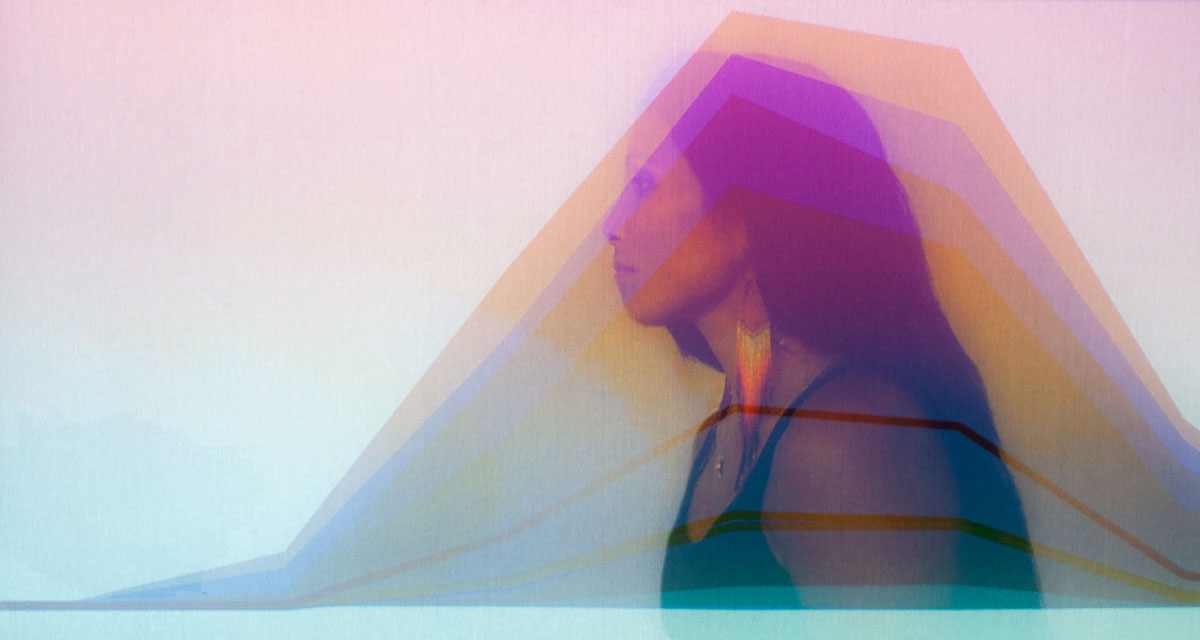
Jordan Marie Brings Three White Horses Daniel, 33, is a citizen of the Kul Wicasa Oyate, the Lower Brule Sioux Tribe in South Dakota. She is the founder and organizer of Rising Hearts, which uplifts Indigenous, Black, and brown voices in the climate and social movements. Since the pandemic began, Daniel has been helping people navigate Covid-19 relief programs. She has also been organizing virtual events to raise awareness for missing and murdered Indigenous women, trans, and two-spirit people. “You can’t fight for climate justice without fighting for gender, racial, social, and economic justice,” Daniel says. “They are all rooted in systemic infrastructures of oppression and racism. You can go all the way back and find the culprit of colonialism that bred white supremacy and racism into what we see today.”
Kevin Patel

Kevin Patel, 20, is a Southern California–based environmental activist who is, among other things, the founder and executive director of OneUpAction, an organization that supports marginalized youth fighting climate change. In 2019, he co-created the first Youth Climate Commission in Los Angeles, a model used by OneUpAction to help youth leaders around the world influence their local governments. As he has worked remotely from his south-central Los Angeles home, Patel has had the added burden of worrying about the future of his family’s small hotel, with business being affected by the pandemic. When I asked Patel about why he does this work, he didn’t hesitate: “This doesn’t come out of a sense of passion for me; it is a survival tool for me and my community.”
Sophia Li
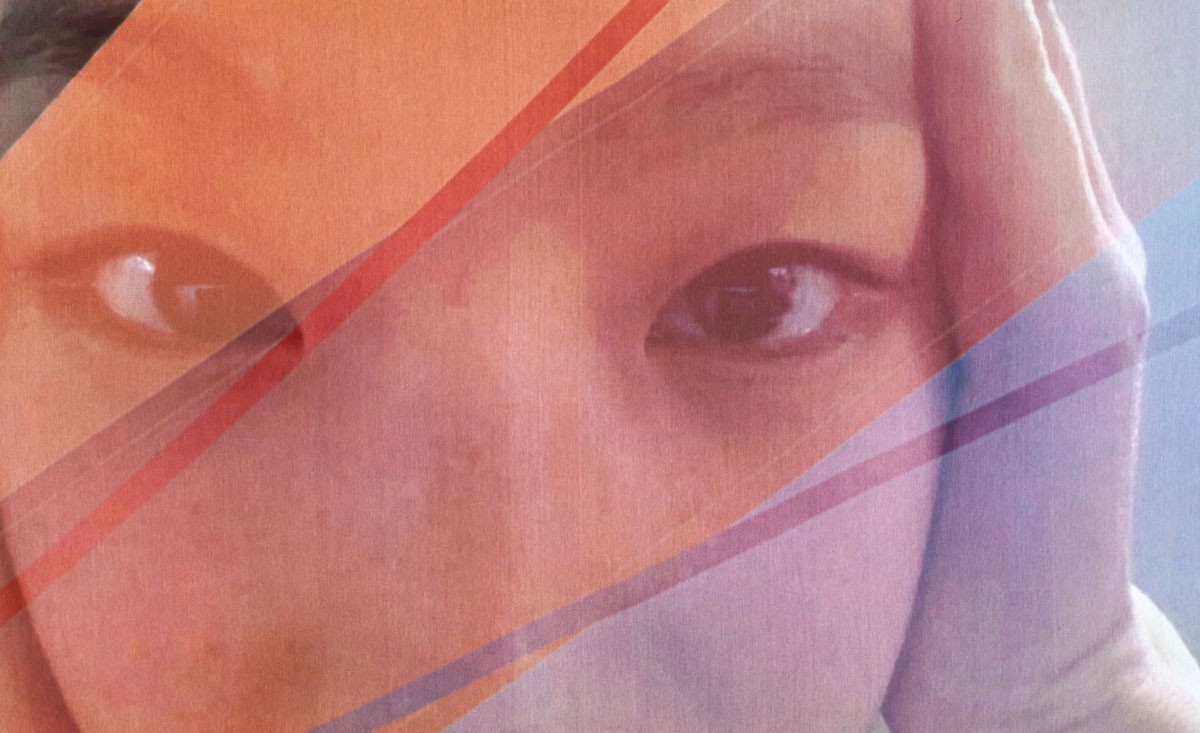
Sophia Li, 30, is a multimedia journalist and filmmaker whose work has been highlighted by CNN, Vogue, and the United Nations. She also serves on the board of directors for Slow Factory, a nonprofit dedicated to improving sustainability in the fashion industry. Quarantining in Brooklyn, Li has seen her workload increase significantly during the pandemic, as people seek “conscious content”—multimedia rooted in social or environmental causes. With Céline Semaan, Li co-hosts All of the Above, “Mother Nature’s first talk show,” which plants 1,000 trees for every episode. Throughout the pandemic, Li has also been volunteering in her community with Heart of Dinner to deliver hot meals to East Asian elders in New York City. “This pandemic is like a dress rehearsal for the climate crisis,” she said. “It’s been a great awakening.”
Leila Robb
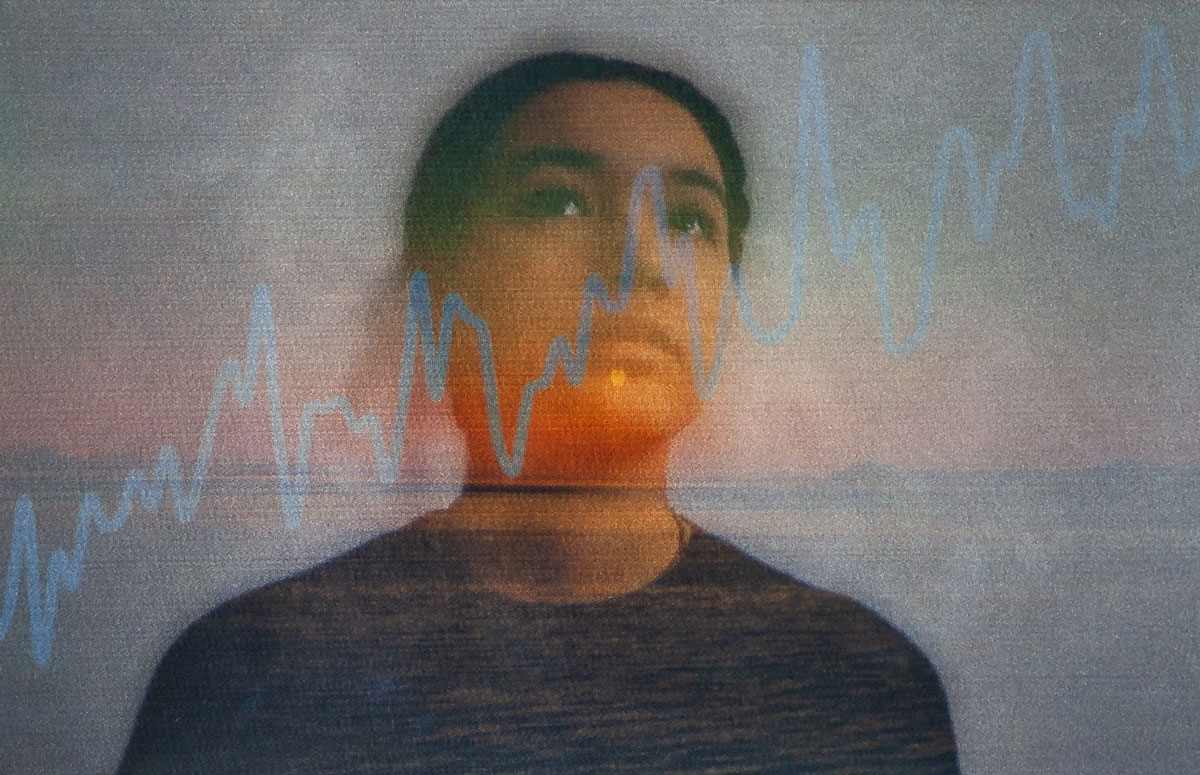
Leila Robb, 18, is a youth climate activist from New York City. While completing her first semester at Bowdoin College, Robb has supported climate change marches and a campaign to collect one million letters about the climate crisis from youth across the United States that will be sent to corporate leaders and government officials. Her father is immunocompromised, and her sister survived Covid-19. For Robb, this pandemic has been a test for the U.S. and for the world. “I am hopeful that we will change how we will treat each other, and that it will help to change some of the things that aren’t going that great in the grand scheme of things,” she said. “We are all so connected during this pandemic.”


